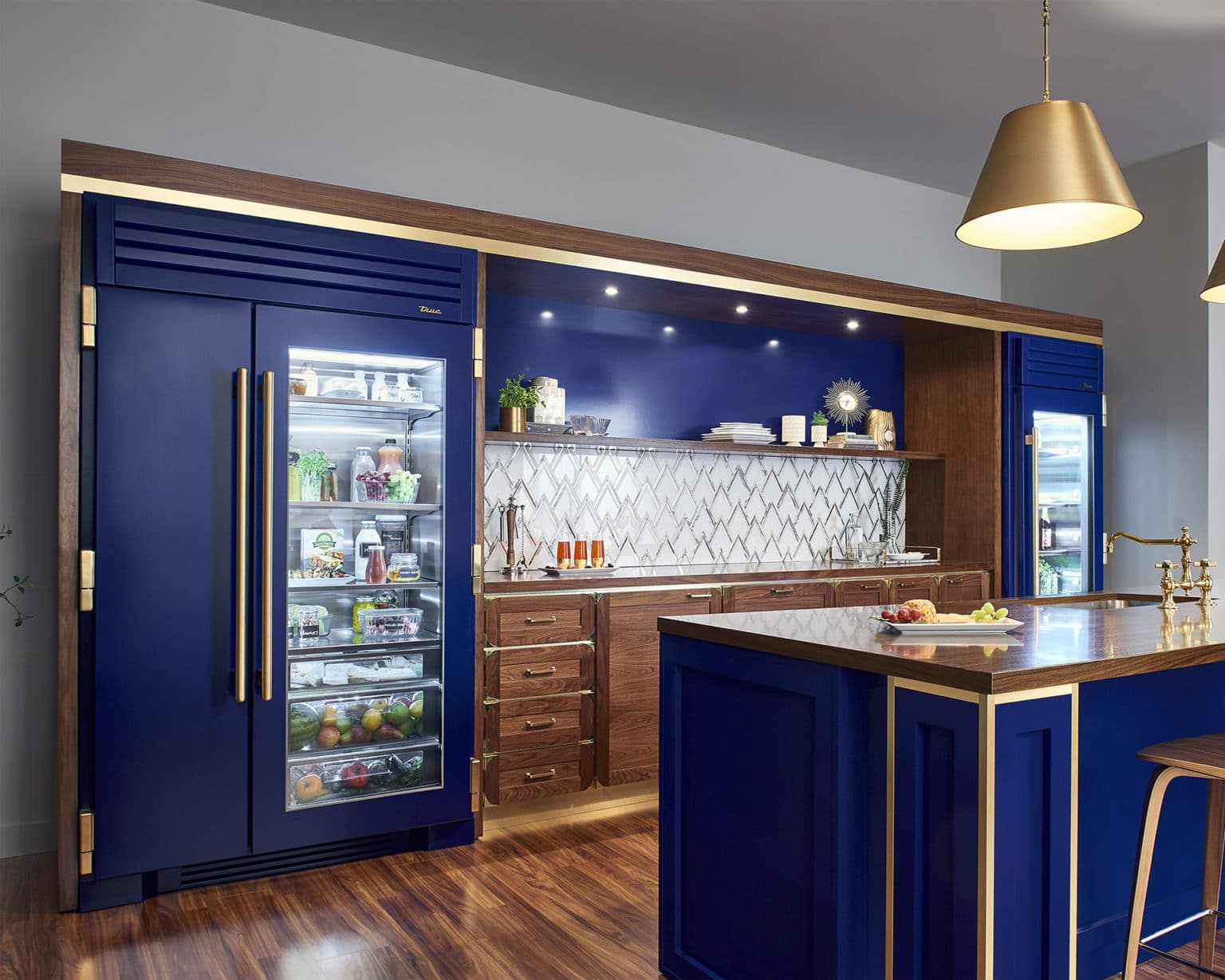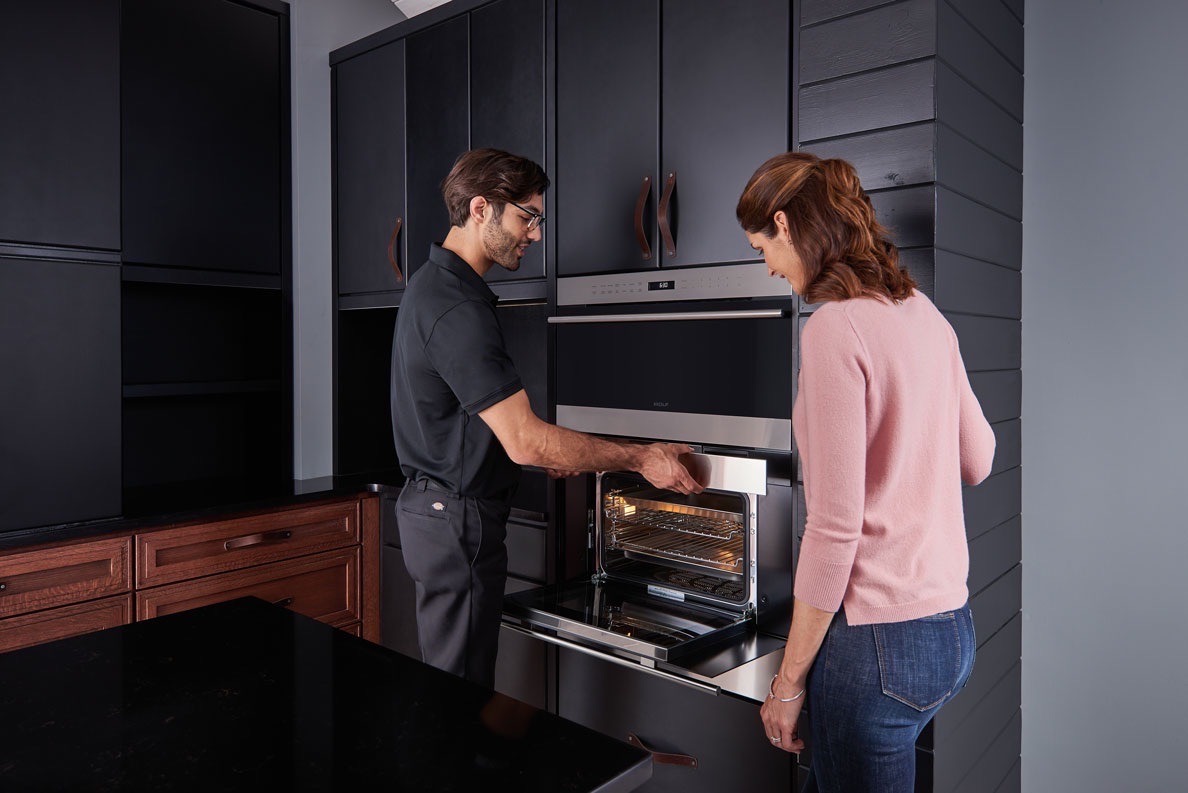Your refrigerator is a kitchen superhero, quietly working 24/7 to keep your food fresh and safe. But like all heroes, sometimes it needs a little help. Knowing when to call for emergency fridge repair can save your food from spoiling and prevent a minor issue from turning into a big problem. Let’s talk about the signs that you need to pick up the phone and call for help, and what to expect with fridge repair costs.
Signs You Need Emergency Fridge Repair
1. The Fridge Isn’t Cooling
One of the most obvious signs something is wrong is when your fridge isn’t cold. Your fridge should keep food at a safe temperature, below 40°F (4°C). If it’s warm inside, bacteria can grow and spoil your food quickly.
What to Do:
- Check the thermostat: Make sure it’s set correctly.
- Check the doors: Ensure they are fully closed and the seals are tight.
- Call for help: If these steps don’t work, it’s time to call for emergency fridge repair.
2. Unusual Noises
Refrigerators usually hum or buzz quietly. But if you hear loud clanging, banging, or hissing sounds, something might be wrong. These noises could mean there’s a problem with the compressor or the fan.
What to Do:
- Locate the noise: Try to figure out where the noise is coming from.
- Don’t DIY: Avoid trying to fix internal components yourself.
- Get a professional: Call for emergency fridge repair to prevent further damage.
3. Water Leaks
Water pooling around your fridge is a sign of trouble. This could be due to a blocked defrost drain, a broken water supply line, or a faulty door seal. Water leaks can damage your kitchen floor and lead to mold growth.
What to Do:
- Mop it up: Clean up any standing water immediately.
- Check the drip pan and drain hole: See if they are clogged or full.
- Call for repairs: If the leak continues, contact a fridge repair service right away.
4. Frost Build-Up
A little frost in the freezer is normal, but if you see thick ice on the walls or ceiling, there’s a problem. Your fridge might not be defrosting properly, which can make it less efficient and raise your energy bills.
What to Do:
- Manual defrost: Try defrosting your freezer manually.
- Minimize opening: Keep the freezer door closed as much as possible.
- Call a pro: If the frost returns quickly, you need emergency fridge repair.
5. Food Spoiling Quickly
If your food is spoiling faster than usual, even though the fridge temperature seems fine, there might be a hidden problem. This could be due to poor air circulation, a malfunctioning thermostat, or other issues.
What to Do:
- Monitor temperature: Use a thermometer to check the fridge temperature.
- Avoid overcrowding: Ensure there’s enough space for air to circulate.
- Seek professional help: Call a technician if the problem persists.
Fridge Repair Cost: What to Expect
When calling for emergency fridge repair, it’s important to understand the potential costs involved. Here’s what can affect the price:
1. Type of Problem
- Minor Repairs: Issues like replacing door seals or unclogging a drain are usually less expensive.
- Major Repairs: Problems with the compressor, thermostat, or coolant system are more complex and costly.
2. Parts and Labor
- Parts: The cost of replacement parts varies depending on your fridge’s brand and model.
- Labor: Technicians charge for their time, and emergency services may come with an additional fee.
3. Warranty Coverage
- Manufacturer’s Warranty: If your fridge is still under warranty, some repairs might be covered, reducing your out-of-pocket expense.
- Extended Warranty: Check if you have an extended warranty that covers specific repairs.
4. Service Provider
- Local Rates: Fridge repair costs can vary based on your location and the rates charged by different service providers.
Preventing Future Issues
Regular maintenance can help prevent many common fridge problems. Here are some tips to keep your fridge running smoothly:
1. Clean the Coils
Dust and dirt can build up on the condenser coils, making your fridge work harder. Clean the coils every six months.
2. Check the Seals
Make sure the door seals are tight and free of cracks. Replace them if they’re worn out to keep the cold air in.
3. Defrost Regularly
If you have a manual-defrost freezer, make sure to defrost it regularly to prevent excessive frost build-up.
4. Keep It Cool
Place your fridge away from heat sources like ovens or direct sunlight. This helps it maintain the right temperature without overworking.
5. Proper Loading
Don’t overcrowd your fridge. Allow space for air to circulate, keeping your food at the right temperature.
When to Call for Emergency Fridge Repair: Final Thoughts
Knowing when to call for emergency fridge repair can save you money, prevent food waste, and keep your kitchen running smoothly. Look out for signs like your fridge not cooling, unusual noises, water leaks, frost build-up, and quick food spoilage. Understanding fridge repair costs and taking steps to prevent future issues will help you stay ahead of any problems.
At Wilshire Refrigeration, we pride ourselves on providing fast, reliable, and affordable fridge repair services. Don’t let a malfunctioning fridge disrupt your life. Call us today for expert emergency fridge repair and keep your cool without the hassle. Your satisfaction is our top priority!
Remember, timely repairs can make a big difference. Share this guide with friends and family so they know what to do when their fridge needs a hero!



